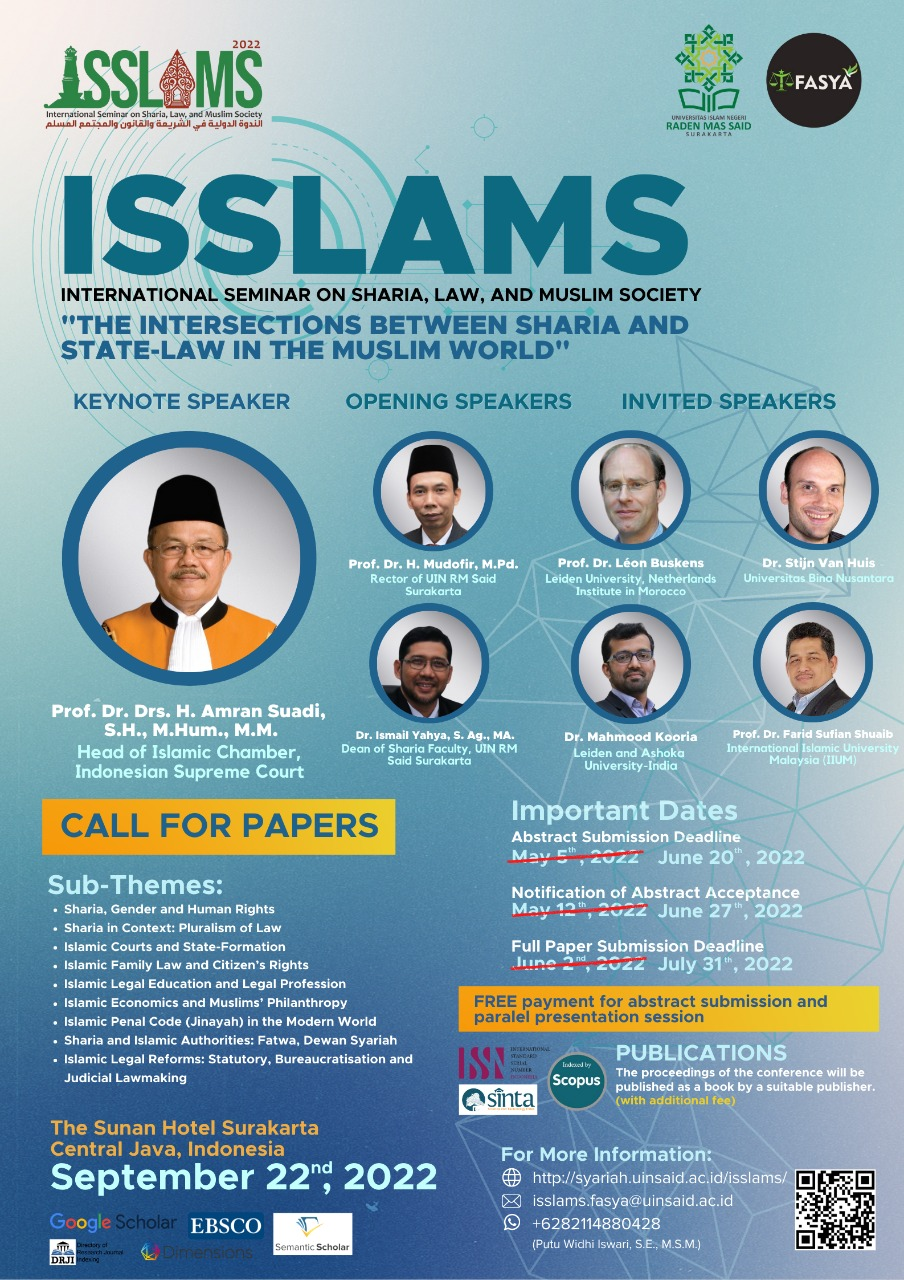International Seminar on Sharia, Law and Muslim Society (ISSLAMS)

The International Seminar on Sharia, Law, and Muslim Society (henceforth ISSLaMS) is a biennial conference held by the Faculty of Sharia UIN Raden Mas Said Surakarta, Indonesia. This conference serves as a forum for scholars from all around the world to disseminate and discuss their works on sharia, law, and Muslim society. This forum consists of keynote, invited, and panel speakers. The subject of this conference includes a wide range of studies ranging from doctrinal analysis on different substantive areas of sharia and (Islamic) law, e.g. Islamic family law and Islamic economics, to more descriptive studies on sharia in society. It thus covers studies on the functioning of sharia or Islamic law in society from various disciplines, such as politics, history, anthropology of law, sociology of law, gender, and the like. The first conference of ISSLaMS will be held on 22 September 2022 in Surakarta, Central Java, Indonesia. The theme for this year conference is “the Intersections between Sharia and State-Law in Muslim World”.
-
International Seminar on Sharia, Law and Muslim Society (ISSLAMS) 2022
September 22, 2022 – September 23, 2022
Wael B. Hallaq, a renowned sharia scholar, has called sharia an ‘episteme’ that suffered a ‘structural death’ following the dawn of modernity in the nineteenth and early twentieth centuries (Hallaq 2009, 15–16). Yet, its resurgent is remarkable across a number of jurisdictional fault-lines: from Muslim-majority nations in Middle East and Southeast Asia to Muslim-minority societies in Western Europe and North America. Across these jurisdictions, the relationship between sharia and state law is central. It includes sharia-state encounters, notably in the form of (state) Islamic law, in the field of family law, which is often asserted as the ‘core’ or ‘last stronghold’ of sharia (Moors 2003, 2; Coulson 1969, 115–6), and other substantive areas of law, such as Islamic economics and Islamic philanthropy and also jinayah (Islamic penal law). Regardless of their differences in their own specific context, these areas somehow manage to secure an importance place in the modern days. It involves different loci of authority to interpret, legislate, and enforce sharia, or parts of it that not only flourish but also being challenged around the Muslim world. Equally important are implications of the increasingly unsettled authority of apparently agreed-upon substance of sharia. To contribute on these issues, we would like to invite scholars from diverse discipline including law, anthropology, and Islamic studies, working in both Muslim-majority and Muslim-minority contexts, to present their works in our International Seminar on Sharia, Law, and Muslim Society (ISSLaMS).

This work is licensed under a Creative Commons Attribution 3.0 License.
 International Seminar on Sharia, Law and Muslim Society (ISSLAMS)
International Seminar on Sharia, Law and Muslim Society (ISSLAMS)